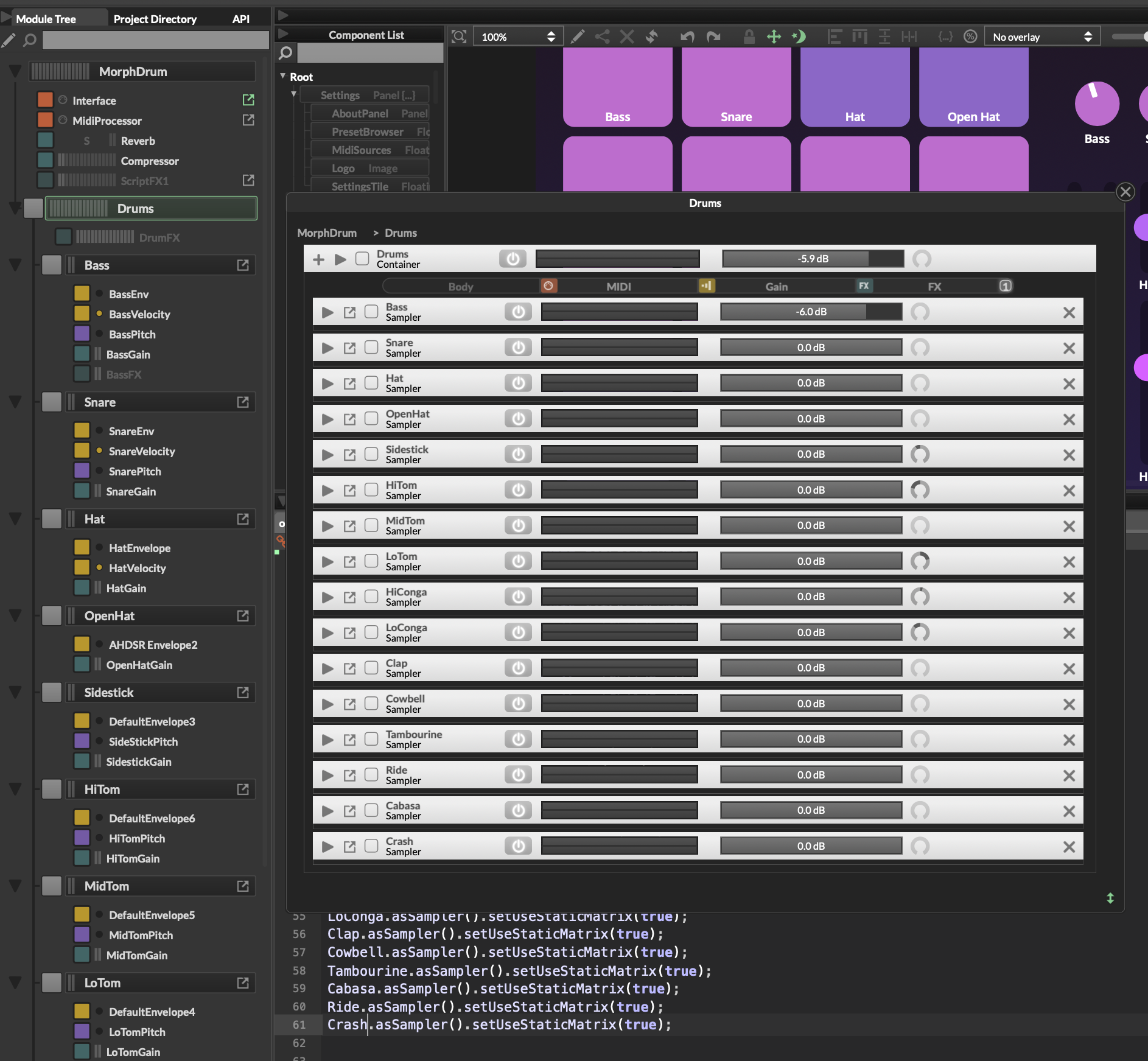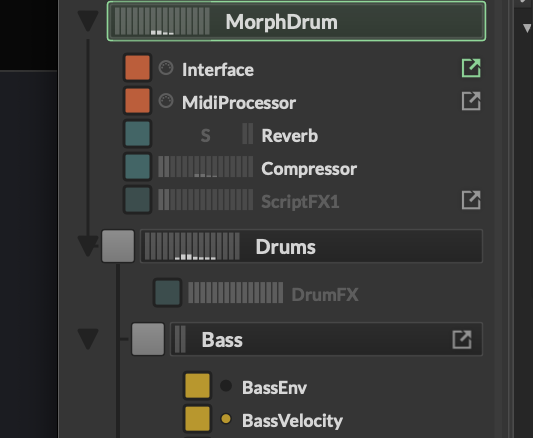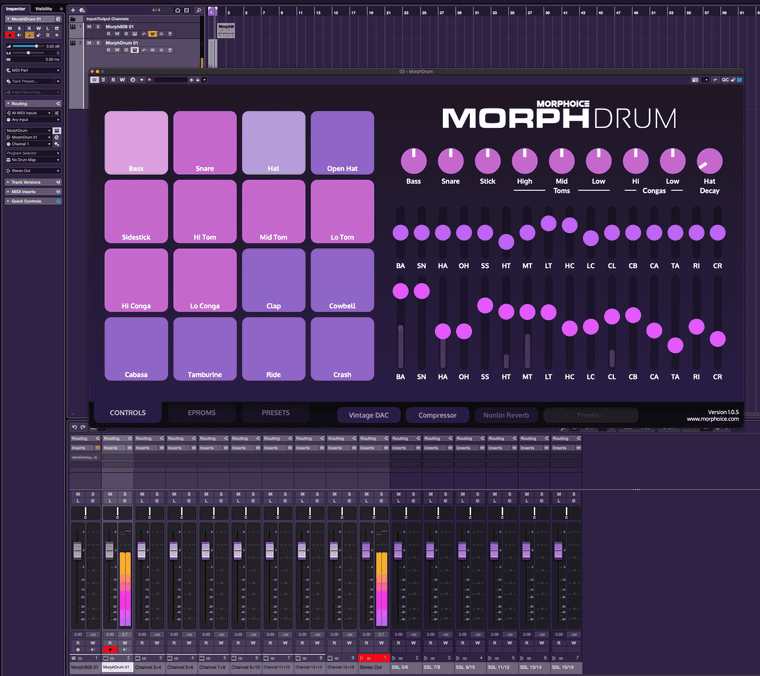@dannytaurus no nothing changed except the plugin version in project settings. the hise version was around half a year newer from the one i last compiled it with on the develop branch
Posts
-
RE: recompiled plugin, cubase cid changed, projects wont loadposted in General Questions
-
RE: recompiled plugin, cubase cid changed, projects wont loadposted in General Questions
@dannytaurus how would I know? i have no idea how to display them, the cubase project files are binaries that can't be read with a text editor
-
RE: recompiled plugin, cubase cid changed, projects wont loadposted in General Questions
@dannytaurus it is and has always been a custom code that didn't change on recompiling. I paid extra attention on that. only the version number changed from 1.0.11 to 1.0.12
-
recompiled plugin, cubase cid changed, projects wont loadposted in General Questions
I recompiled my plugin with a minor change in the dsp network,
all the same project settings as before but the plugin suddenly has another cid in cubase
and all my past projects wont load it. it works fine if i reload it as a new plugin but it has a different id inside cubase.there hasn't anything been changed platform wise, both were vst3, it's just made with a newer version of HISE...
anyone encountered this before and has any ideas how to fix?
merry Christmas
-
RE: No Multichannel outputposted in General Questions
I fiddled about a little and this script finally worked:
const var MorphDrum = Synth.getChildSynth("MorphDrum"); const var matrix = MorphDrum.getRoutingMatrix(); matrix.addConnection(0,0); matrix.addConnection(1,1); matrix.addConnection(2,2); matrix.addConnection(3,3); matrix.addConnection(4,4); matrix.addConnection(5,5); matrix.addConnection(6,6); matrix.addConnection(7,7); matrix.addConnection(8,8); ...apparently I was quite close already, but it does indeed need the script to do the addConnection and won't work without. Thanks for the help! I would never have figured that out on my own
-
RE: No Multichannel outputposted in General Questions
@Chazrox said in No Multichannel output:
const var numBIGDRUMMYVST = Synth.getRoutingMatrix("BIG DRUMMY VST");
numBIGDRUMMYVST.setNumChannels(24);
that changes nothing either ;/
-
RE: No Multichannel outputposted in General Questions
@Chazrox still no change.
is the structure a problem`? they are all in a container...

-
RE: No Multichannel outputposted in General Questions
@Chazrox the daw setup is fine and just as with every other plugin, probably the initscript is missing.... i'll check if its needed
-
RE: No Multichannel outputposted in General Questions
@David-Healey is the script necessary if the routing doesnt need to dynamically change? from what I understand how I set things up should have sufficed, at least in hise all channels show their routed audio, just not in cubase, there everything is on 1+2 again
-
RE: No Multichannel outputposted in General Questions
@Chazrox i didnt understand any of the first sentence but as for the second, yes 1+2 is having all the content of the entire plugin, although in hise anything except the kick is routet to channels 3 and above
-
No Multichannel outputposted in General Questions
Ahoi,
I have setup 16 channels and routed each sound of my drum plugin to a channel
it looks right in HISE, but when i compile the project and run the plugin in a DAW
even with all multi outputs switched on it still just plays through the main 1+2what am I missing?


are there any tutorials or documentation on how to handle multichannel?
-
RE: Multichannel state of thingsposted in General Questions
Awesome! What would be the best practice for a linndrum thingy? I have a gated reverb using the convolution, so that would either require me to have 16 instances of it for each drum sound or use it as a send effect which kind of defeats the whole idea of letting the user process individual channels. so compression and reverb are probably best removed.
usually drum samples are mono, so with 16 channels i could have every pad sent to an output, however that would be total overkill in the daw. also having the output sent to mono channels in some daws doesnt let you use stereo plugins on them. so it would be best toe.g. have 8 stereo outputs and give the user a sort of routing page to select which sound should be in which channel.... or maybe predefined them in groups? Kick, Snare, Toms, Hats, Clap, Perc... which is how I myself would usually setup my mixes... then maybe have a FX channel for the verb again....
decisions, decisions....